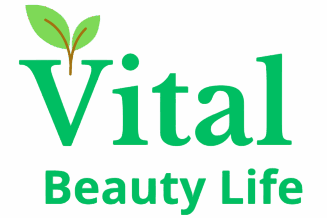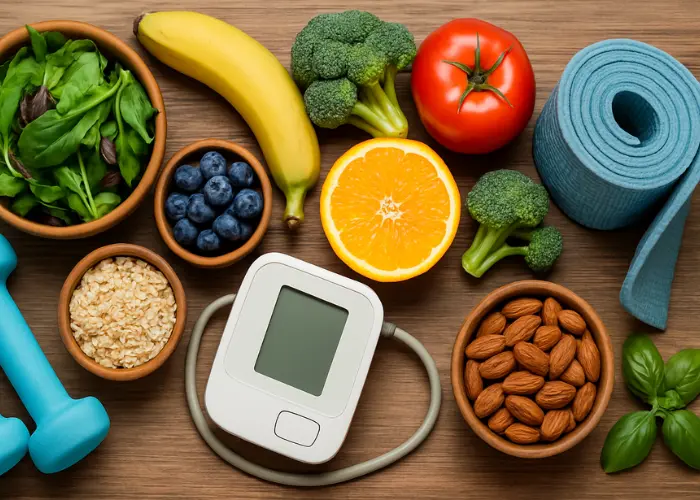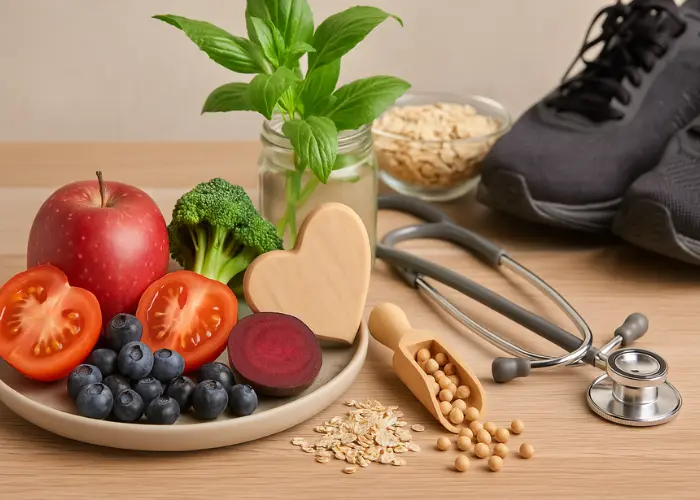High blood pressure (also known as hypertension) affects nearly half of adults in the United States, according to the CDC. While medications can help, many people are looking for natural ways to lower blood pressure and support overall heart health. The good news? Small, sustainable lifestyle shifts can make a big difference.
In this post, we’ll explore science-backed, practical tips you can start today to gently and effectively reduce high blood pressure—naturally.
Eat More Heart-Friendly Foods
One of the most effective ways to support healthy blood pressure is through your diet. A balanced eating plan like the DASH (Dietary Approaches to Stop Hypertension) diet has been shown to significantly help lower blood pressure. Here are some food swaps to try:
- Add more fruits and vegetables (especially leafy greens, berries, and citrus)
- Choose whole grains over refined carbs
- Incorporate nuts, seeds, and legumes
- Reduce sodium by cooking at home and limiting processed foods
According to the National Institutes of Health, reducing salt and increasing potassium-rich foods can have a meaningful impact on blood pressure levels.
Stay Active with Gentle Movement
You don’t have to hit the gym every day to see results. Moderate activities like walking, yoga, or dancing for at least 30 minutes most days can significantly support heart health. Regular movement helps the heart pump more efficiently, reducing the pressure on your arteries.
If you’re wondering how to reduce high blood pressure naturally, daily movement is one of the most accessible first steps.
Practice Daily Stress Management
Chronic stress can raise your blood pressure over time. Finding simple ways to relax can help both your mind and your heart. Consider trying:
- Breathing exercises (like box breathing)
- Mindful meditation
- Spending time in nature
- Limiting screen time and social media
According to the American Heart Association, stress management is a vital part of any heart-healthy lifestyle.
Cut Back on Caffeine and Alcohol
While your morning coffee may not be off-limits, too much caffeine can temporarily spike blood pressure. Try monitoring how your body reacts after caffeinated drinks.
Alcohol can also contribute to higher blood pressure when consumed in excess. Aim for moderation—generally one drink per day for women, two for men, as recommended by the CDC.
Sleep More, Worry Less
Not getting enough quality sleep is linked to higher risks of hypertension. Prioritize 7–9 hours of sleep each night by creating a calming bedtime routine and keeping your bedroom cool and dark.
If you struggle with sleep, limiting screen time before bed and avoiding late-night caffeine may help reset your natural rhythm.
Conclusion: Start Small, Stay Consistent
Making lifestyle changes for hypertension doesn’t have to feel overwhelming. Start with one or two habits from this list and build from there. By incorporating natural practices like a nutrient-rich diet, daily movement, stress relief, and sleep hygiene, you can support your blood pressure in a sustainable and holistic way.
Have a tip that works for you?
Leave a comment, share this article.



